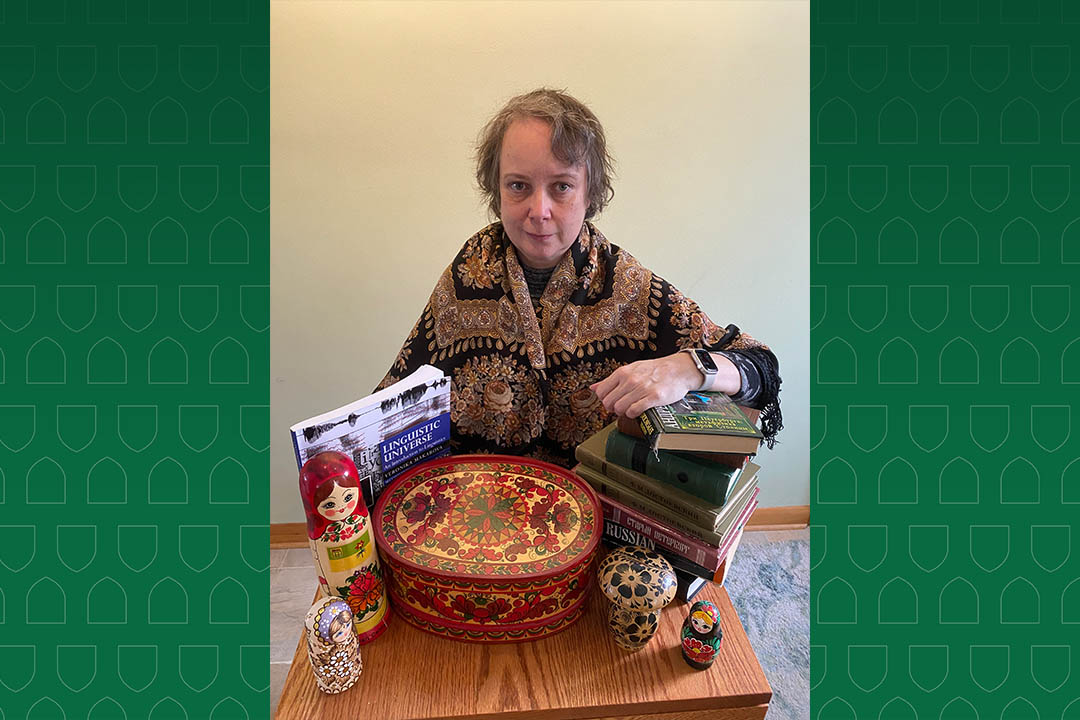
COVID-19 impact on immigrant languages, culture, health, the focus of USask study
Canadians had their lives heavily disrupted by COVID-19, but as University of Saskatchewan (USask) researcher Dr. Veronika Makarova (PhD) notes, the pandemic had disproportionately negative impact on immigrants with weaker English or French language skills.
“First, they were disadvantaged in getting access to pertinent emergency information, issued only in the official languages of Canada,” said Makarova, a linguistics professor in USask’s College of Arts and Science.
“Second, communication in immigrant languages decreased because many social and cultural events were disrupted, and social distancing rules curtailed visits with friends, other family members, and fellow immigrants,” she said.
As well, Makarova said immigrants’ efforts to learn Canada’s official languages was disrupted as English as a second language courses for adults, and school attendance for children, were temporarily suspended.
A team of international researchers has been awarded $500,000 over two years in special funding under Canada’s New Frontiers in Research Fund (NFRF), in support of a United Nations initiative that calls on the world to “leverage the power of science for a more equitable, resilient, and sustainable” post-pandemic future, and raise community resilience during emergencies.
Makarova is the principal investigator (PI) on the project; Co-PIs are: Dr. Valery Chirkov (PhD), USask; Dr. Alla Nedashkivska (PhD), UAlberta; Dr. Natalia Gagarina (PhD) and Dr. Lana Soglasnova (PhD), University of Toronto. Other contributors are: Dr. Maria Polinsky (PhD), University of Maryland; Dr. Olesya Kisselev, University of Texas at San Antonio; Dr. Oleksandr Pankieiev (PhD) and Dr. Sarah Polkinghorne (PhD), RMIT University; and Dr. Olga Steriopolo, Leibniz-Centre General Linguistics in Germany.
The USask-led post-pandemic study is the first in Canada to examine communication and linguistic needs of immigrant populations during and after emergencies and propose better ways to assist them. Among the factors to consider is linguicism—discrimination against people based on the languages they speak, their accents, and less developed literacy in the majority language.
“Our overarching goal is decreasing language barriers in immigrant communities with regard to information access in emergencies,” she said. “Another is maintenance of language and culture in these groups during COVID and the post-COVID transition.”
The researchers will examine how the pandemic measures led to destabilizing the health, cultural adaptation, and language practices of immigrants whose mother tongue is Ukrainian or Russian now living in Saskatchewan, Alberta, and in Germany.
These groups were selected, Makarova said, because of their historical prominence in Canada and Germany, the team’s expertise, and recent heightened public attention on these diasporas because of the war in Ukraine.
During the pandemic, the German government published emergency pandemic measures and other crucial information in minority immigrant languages, and Saskatchewan should consider adopting that practice, she said. Even advanced speakers or users of English as a second language can find it difficult to handle medical terminology, she noted.
“We want to identify the channels where immigrants usually obtain the information and bring this to the notice of the Saskatchewan government and the health system so they can gear information to reach these groups,” Makarova said.
Researchers will use online surveys to assess the impact of COVID-19 on the groups, interviews of community activists and group members to learn how they accessed crisis information, the coping mechanisms they used, and the challenges they faced. Roundtable discussions with governments, universities, libraries, and non-government agencies will provide a deeper understanding of community support needs.
The project will go beyond research to provide practical solutions, Makarova said. The researchers are developing digital bilingual emergency vocabulary dictionaries—Ukrainian-English/German, and Russian-English/German—to post online to help immigrants with crises. And the group’s librarian and linguistic experts will improve Cyrillic (alphabet used in Russia, Ukraine, and other Slavic countries) font library catalogue searches to provide users with easier access to crisis and other information.
“We don't want this to be an Ivory Tower project. We want it to be a community project because the major goal is improving the inequities in the immigrant and refugee communities who are not speakers of the national languages as a mother tongue,” said Makarova.
Together, we will undertake the research the world needs. We invite you to join by supporting critical research at USask.

